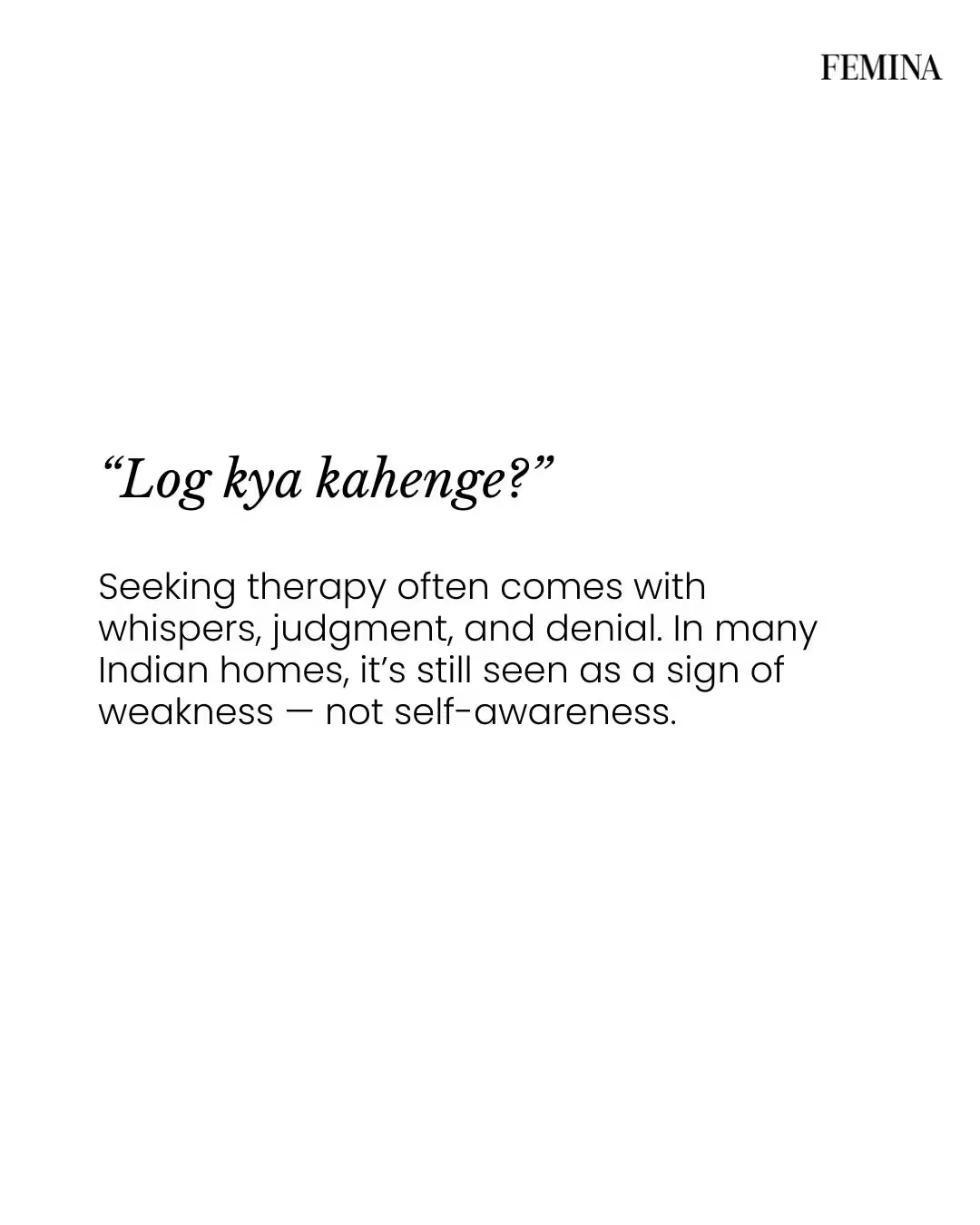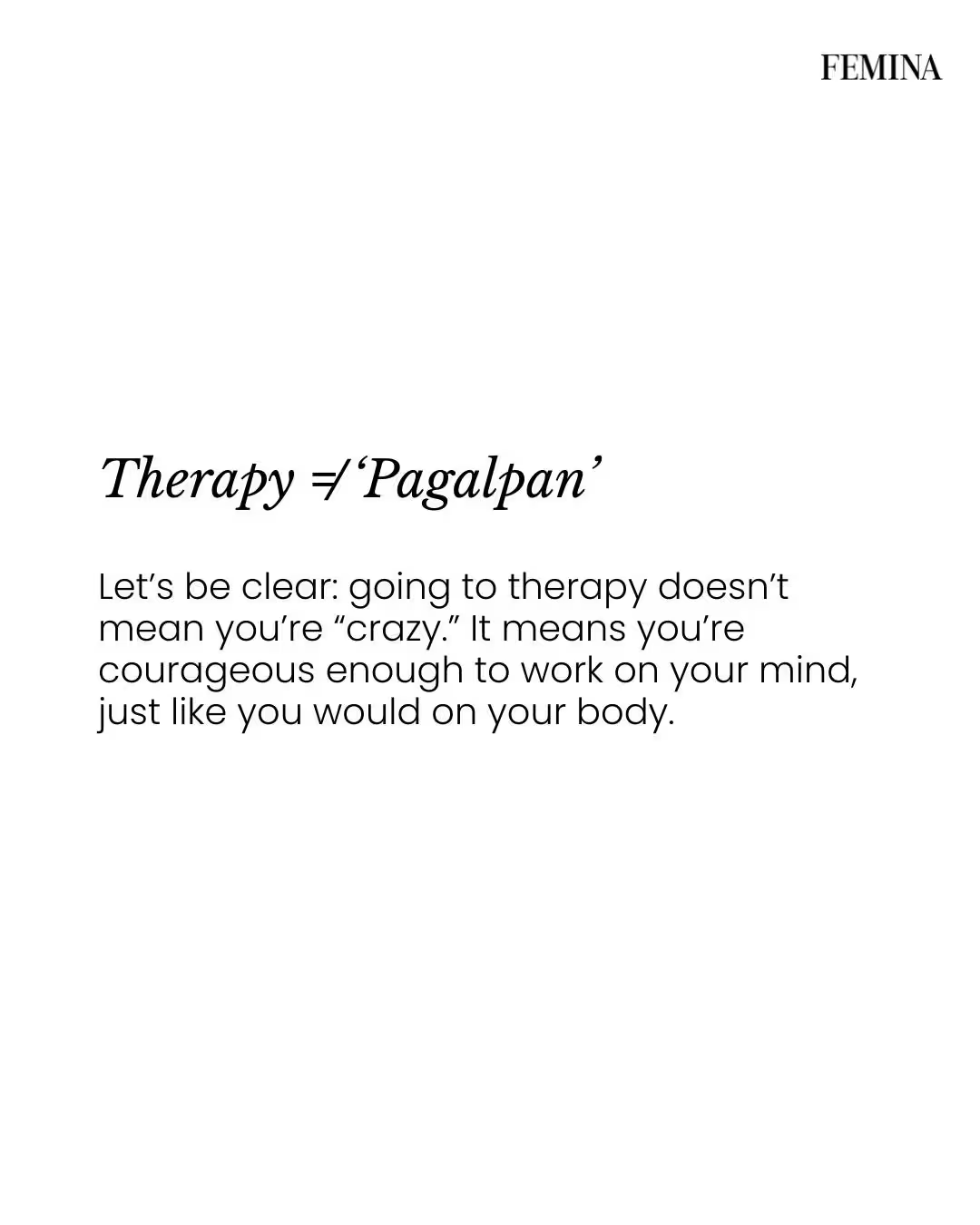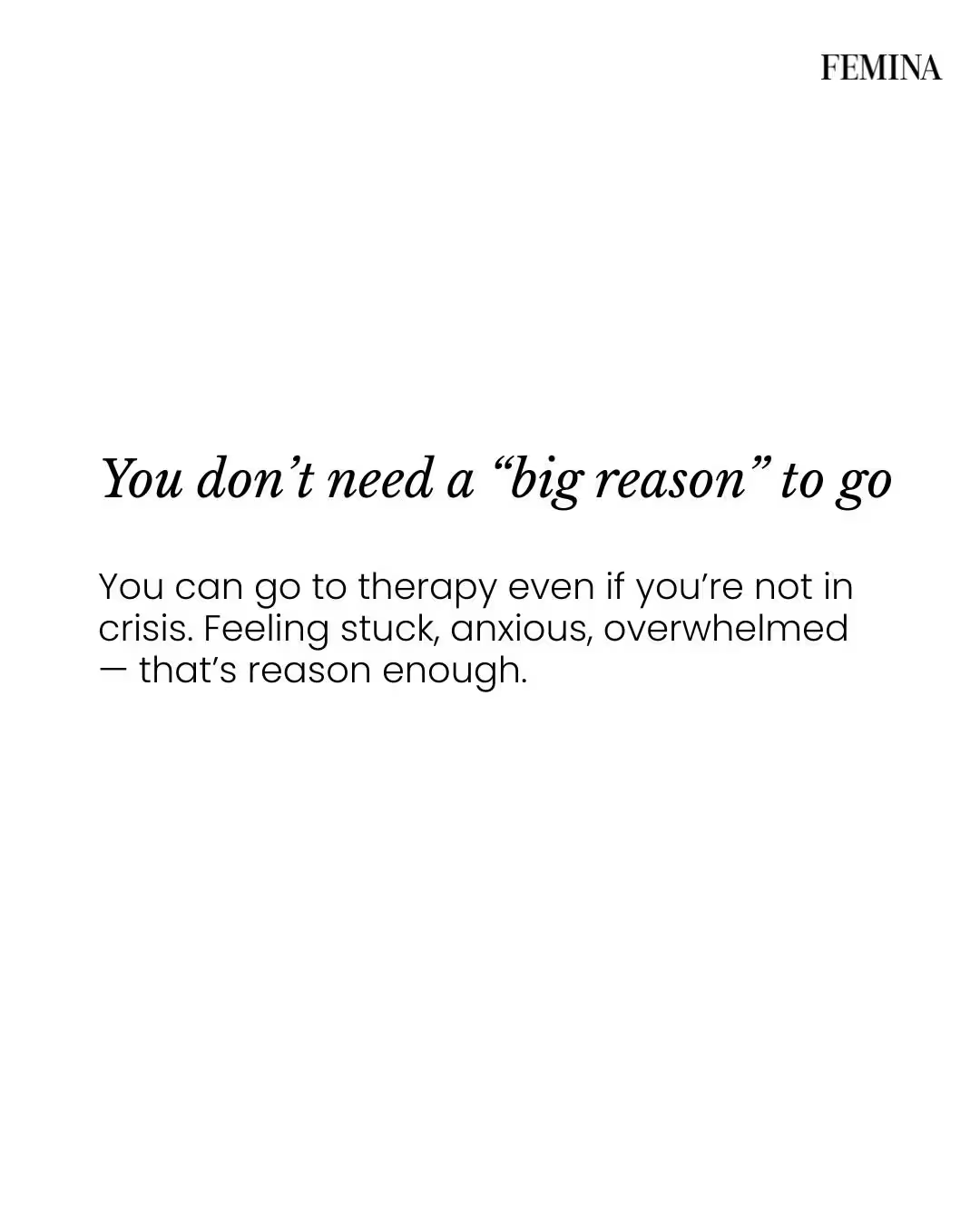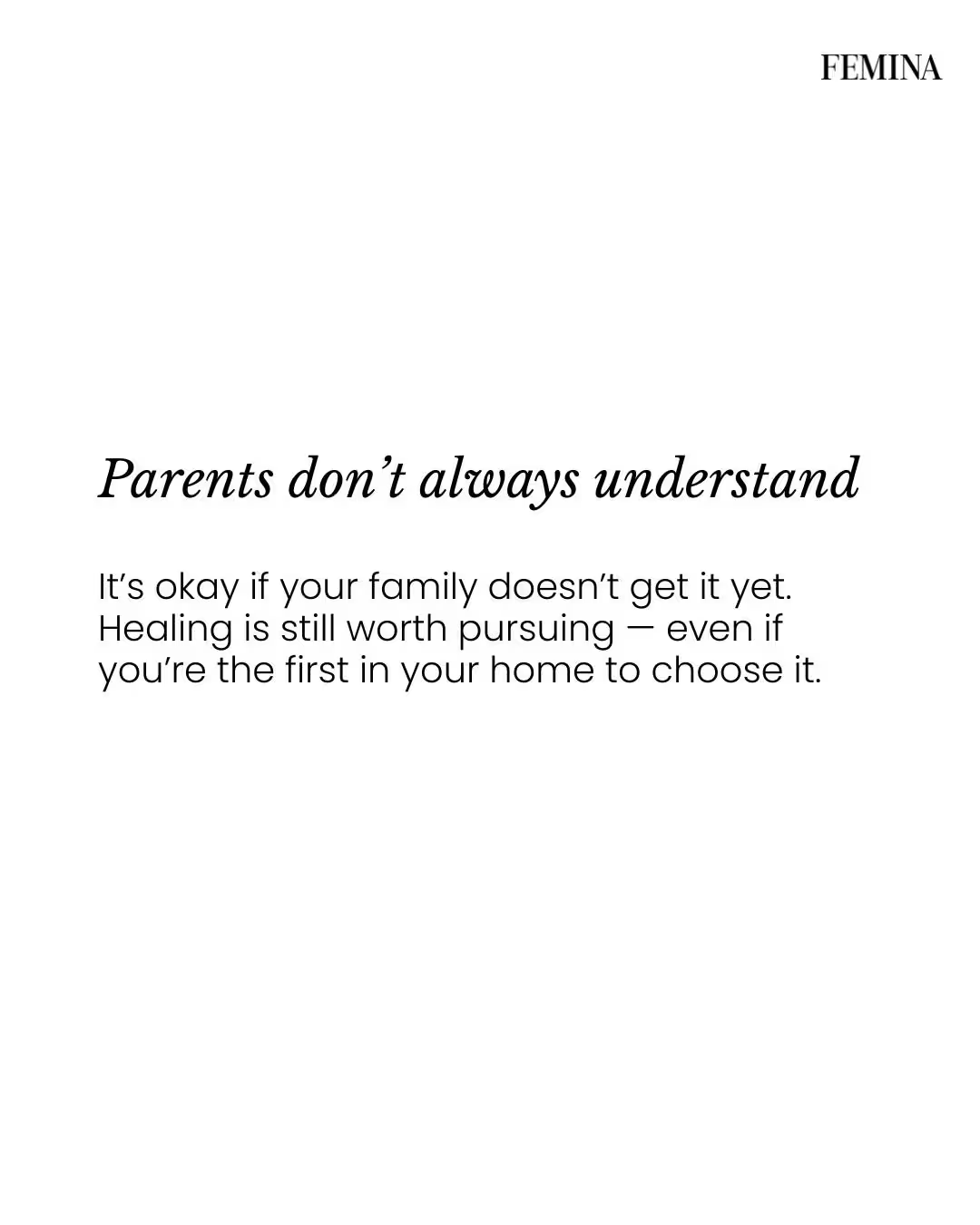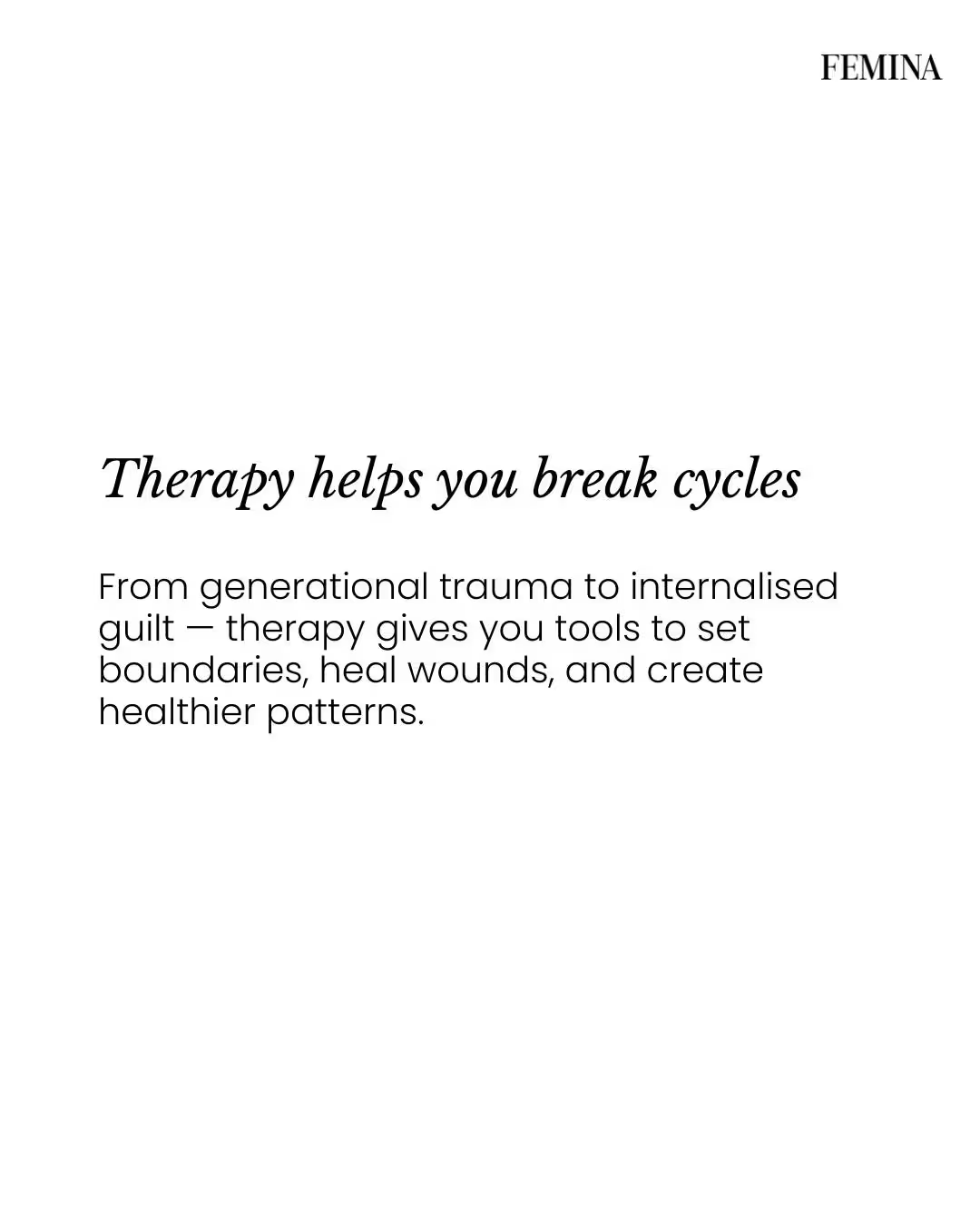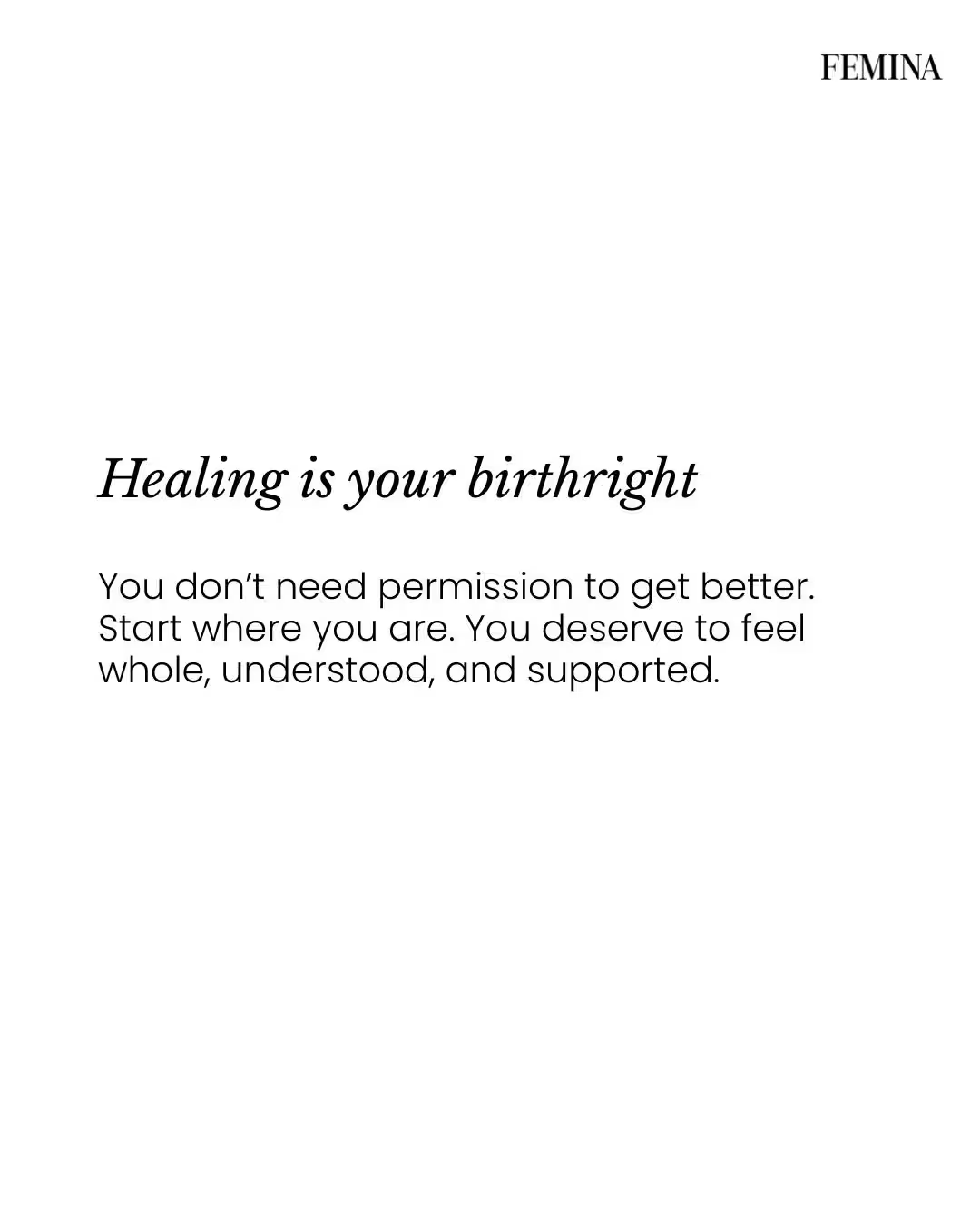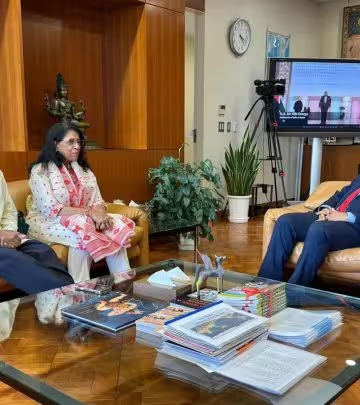Therapy Is Power: A Step Toward Healing
Femina advocates open therapy, urging honest talks on healing and self-care across India!

Image: Instagram
In a refreshing departure from traditional silence around mental health, Femina has taken to social media with a powerful message: therapy is not a sign of weakness but a courageous step toward healing. The latest post by Femina reads, “Therapy isn’t something to hide or feel ashamed of — it’s a step toward healing. In many Indian homes, mental health is still misunderstood, but choosing to talk to someone doesn’t make you weak. It means you’re prioritising your well-being — and that’s powerful.” This statement resonates deeply in a society where mental health continues to be a taboo subject.
Femina’s call to normalise mental health conversations comes at a time when voices across India are pushing for change and breaking down stigmas. With a legacy rooted in decades of covering dynamic social shifts, Femina is not just delivering news but also sparking meaningful discussions about self-care and resilience.
Empowering Conversations
At its core, the message from Femina challenges the prevailing narrative in many Indian households. For years, therapy was shrouded in misconceptions—a secret to hide rather than a tool for self-improvement. Femina’s recent post boldly flips the script. By stating that therapy is an act of self-prioritisation, the post invites individuals to reclaim control over their emotional well-being instead of succumbing to fear or shame.
This initiative comes as part of a broader movement seen in progressive media, where established brands are embracing topics that were once considered too personal or controversial for the mainstream. With mental health discussions gaining traction worldwide, Femina’s contribution serves as a much-needed reminder that seeking professional help or simply sharing one’s struggles is a mark of strength.
In today’s fast-paced world, where stress and anxiety often take centre stage, Femina’s approach is timely. The magazine has long been known for exploring diverse facets of lifestyle and celebrity culture. Yet, this message on therapy highlights its commitment to championing issues that affect everyday lives. By bridging the gap between glamour and grit, Femina reinforces the idea that well-being is universal and transcends social status.
Breaking Mental Health Stigma
Historically, mental health in India has been a subject shrouded in silence. Cultural expectations and deeply ingrained stereotypes have often forced many to suffer in isolation. Femina’s recent statement not only encourages therapeutic openness but also directly confronts those very taboos. The post underlines that admitting the need for help is far from an admission of failure—it is a proactive step towards a healthier life.
Femina’s influence in shaping public discourse is well documented. With its roots stretching back through decades of insightful journalism and trend-setting content, the publication has continually evolved to mirror societal change. Referencing information found on its Wikipedia page, Femina is recognized for its role in diversifying conversations around topics ranging from fashion to social issues. This new initiative on mental health further cements its reputation as a forward-thinking voice in Indian media.
The call to action is subtle yet impactful. Instead of casting therapy as a singular solution, Femina presents it as a component of overall well-being. It is not about replacing everyday life with therapeutic routines; rather, it’s about acknowledging one’s mental state and nurturing it the same way one would care for physical health. This balanced approach is essential for deconstructing myths that have long plagued discussions on mental health in the Indian context.
Behind this message lies a broader cultural relevance. In times when social media is often criticised for perpetuating superficiality, Femina’s post stands out by promoting introspection and self-care. Readers are encouraged to share their experiences and foster a community where vulnerability is met with empathy rather than criticism.
Moreover, the timing of this message could not be more significant. With increasing awareness about mental health globally, the dialogue initiated by Femina is aligning with international trends. The post invites conversation not only through its assertively positive language but also by leveraging hashtags such as #FeminaTalks and #Therapy. These hashtags are poised to unite voices from diverse backgrounds in a shared mission of redefining mental health narratives in India.
In a landscape dominated by ephemeral trends, Femina’s commitment to addressing mental health with dignity and honesty is a refreshing change. Rather than glossing over the painful realities of mental struggles, the post acknowledges them as an integral part of the human experience. It serves as a reminder that healing is a journey—one that requires openness, acceptance, and support from the community at large.
By challenging outdated norms and encouraging proactive self-care, Femina is not only reshaping perceptions within media but also inspiring a generation to value their mental well-being. As more voices join in this conversation, there is hope that the stigma surrounding mental health will gradually dissolve, making way for a society where seeking help is celebrated as an act of bravery.
The essence of Femina’s message is clear: mental health should be part of everyday conversation, not an aside to be whispered about in confidence. This transformative outlook is a call to all Indians—irrespective of background—to look after themselves and embrace wellbeing as an unassailable right.
Read full bio of Glendon Moss


